A Look Beyond Labs: Alternative Waterfowl Hunting Dog Breeds
Labrador retrievers are wonderful duck dogs, yet there are several other breeds that also fit the bill for waterfowlers
Labrador retrievers are wonderful duck dogs, yet there are several other breeds that also fit the bill for waterfowlers
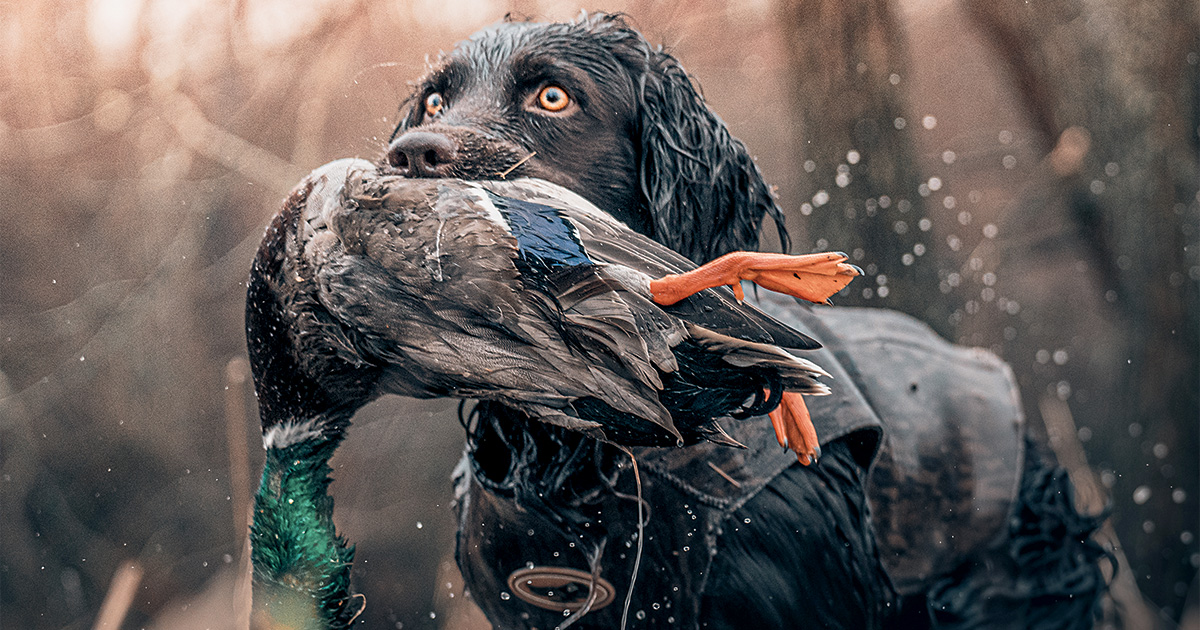
Born with a natural drive to retrieve, superb athletic abilities, high intelligence, and an aim-to-please personality suitable for training, Labrador retrievers are the overwhelming favorite among waterfowlers—and for good reason. But the ever-popular Lab isn’t the only option for hunters who seek a canine companion in the marshes and fields. In fact, the breeds that are suitable for waterfowling are almost as diverse as the birds they are tasked to retrieve. Following is a look at some of the other dogs that will do a good job retrieving ducks and geese as well as many other game birds.
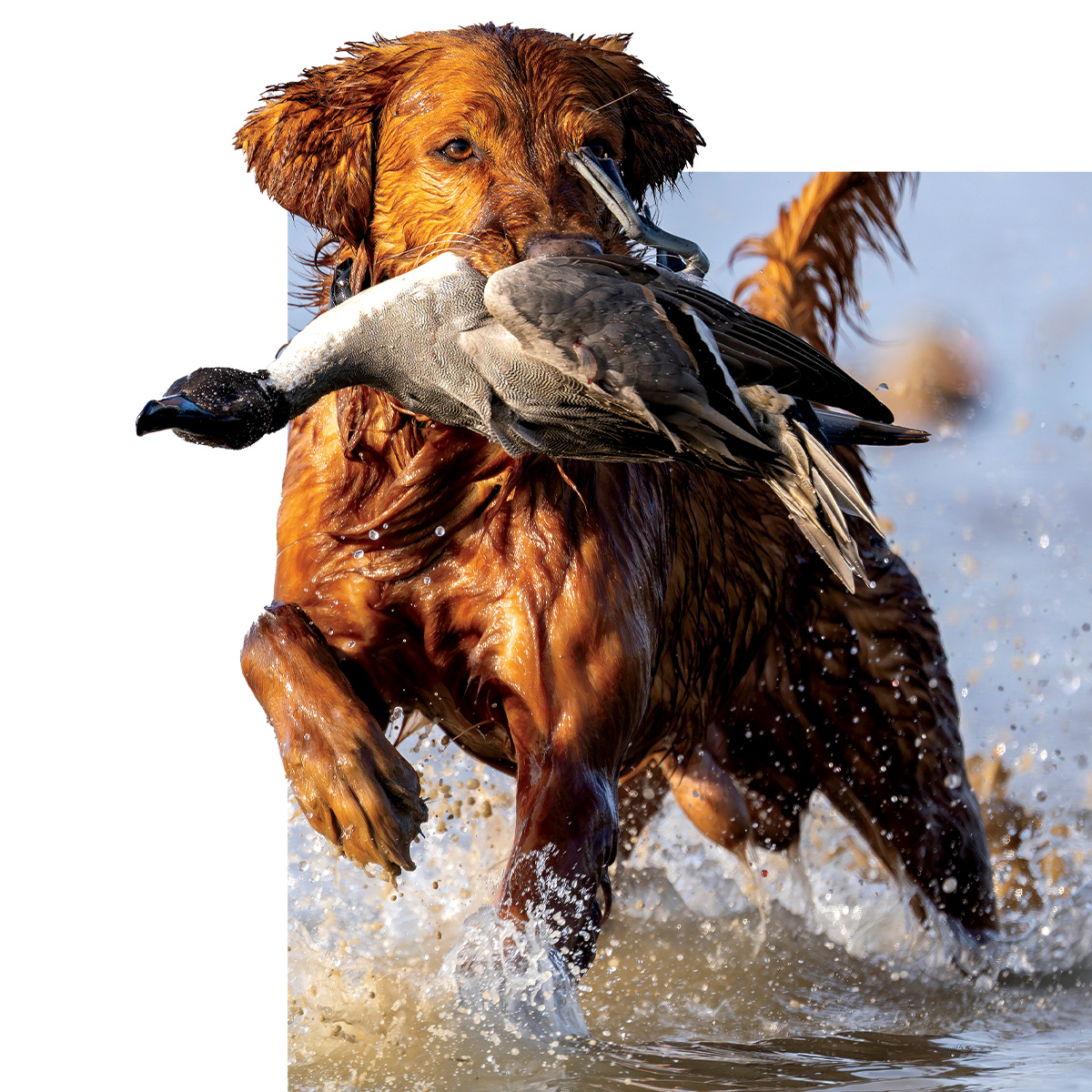
Golden retrievers may be best known for their kid-friendly demeanor, intelligence, and good looks, but the breed was initially developed with hunting in mind. Originating in the Scottish Highlands nearly two centuries ago, golden retrievers were bred to possess a keen nose, an athletic build, a warm coat, a strong desire to retrieve, and a love of water. Modern golden retrievers that exhibit these original traits are generally known as “field” golden retrievers.
Field goldens typically have a smaller frame and a shorter, darker coat than “show” or other varieties of goldens that have been popularized as pets. Field goldens are extremely intelligent, highly trainable, and are tenacious retrievers, making them a great choice for waterfowl and upland bird hunters. They also possess all the other wonderful qualities inherent to the breed, so they make great family pets as well as hunting dogs.
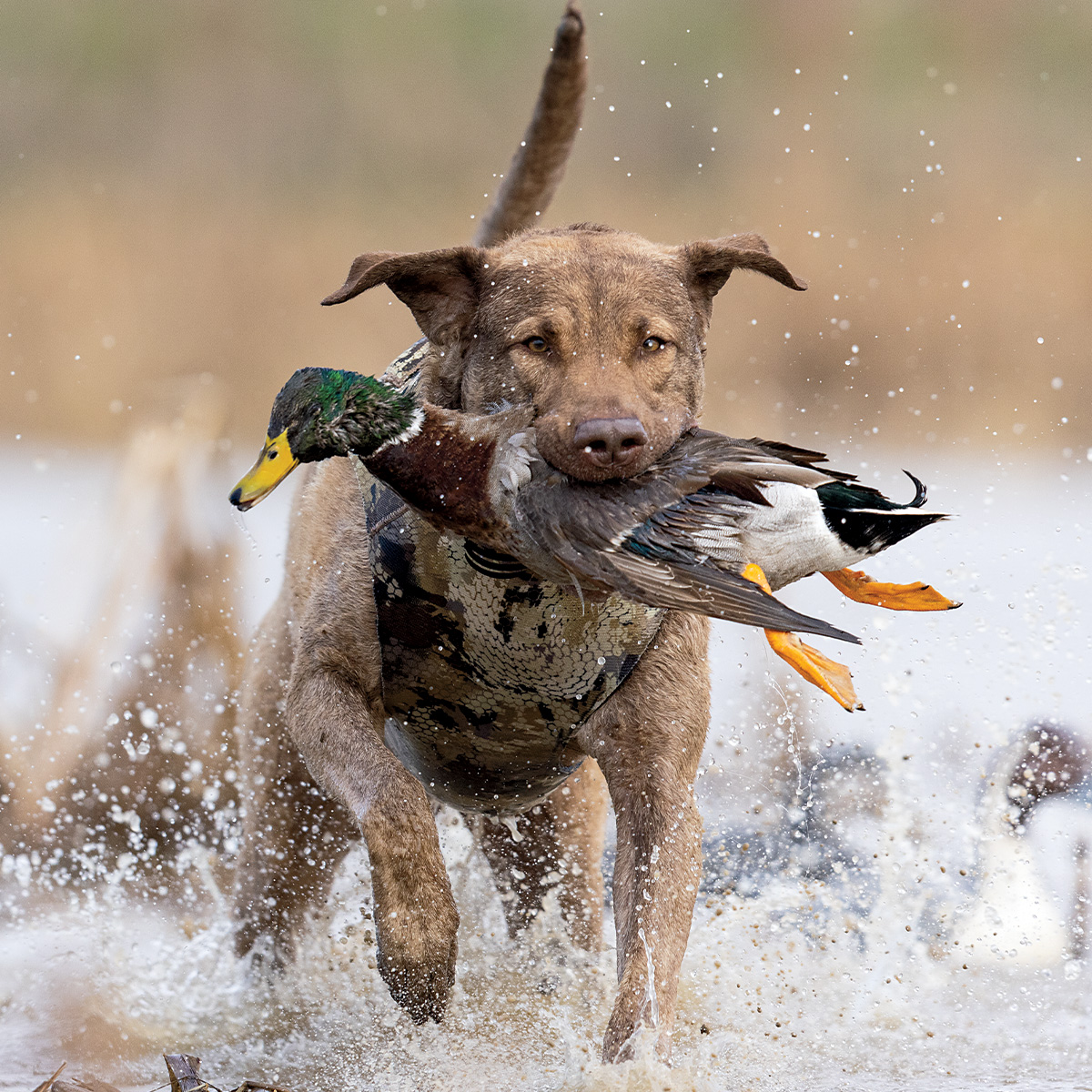
Chesapeake Bay has a long, celebrated history as the cradle of American waterfowl hunting, and it was on these hallowed waters that hardy watermen developed what is arguably the toughest waterfowl retriever in the world: the Chesapeake Bay retriever, commonly known as the Chessie.
With adult males tipping the scales at over 80 pounds, these barrel-chested dogs are the middle linebackers of the retriever world. Developed to withstand the cold temperatures and big waves of their namesake waters, Chesapeake Bay retrievers have a thick, curly coat that is oily to the touch, providing extra warmth and water resistance for retrieving ducks and geese in rough, icy waters. Is there a dog breed better equipped to handle the brutal conditions that waterfowl hunters endure each season? Chessie owners would say “no contest.”
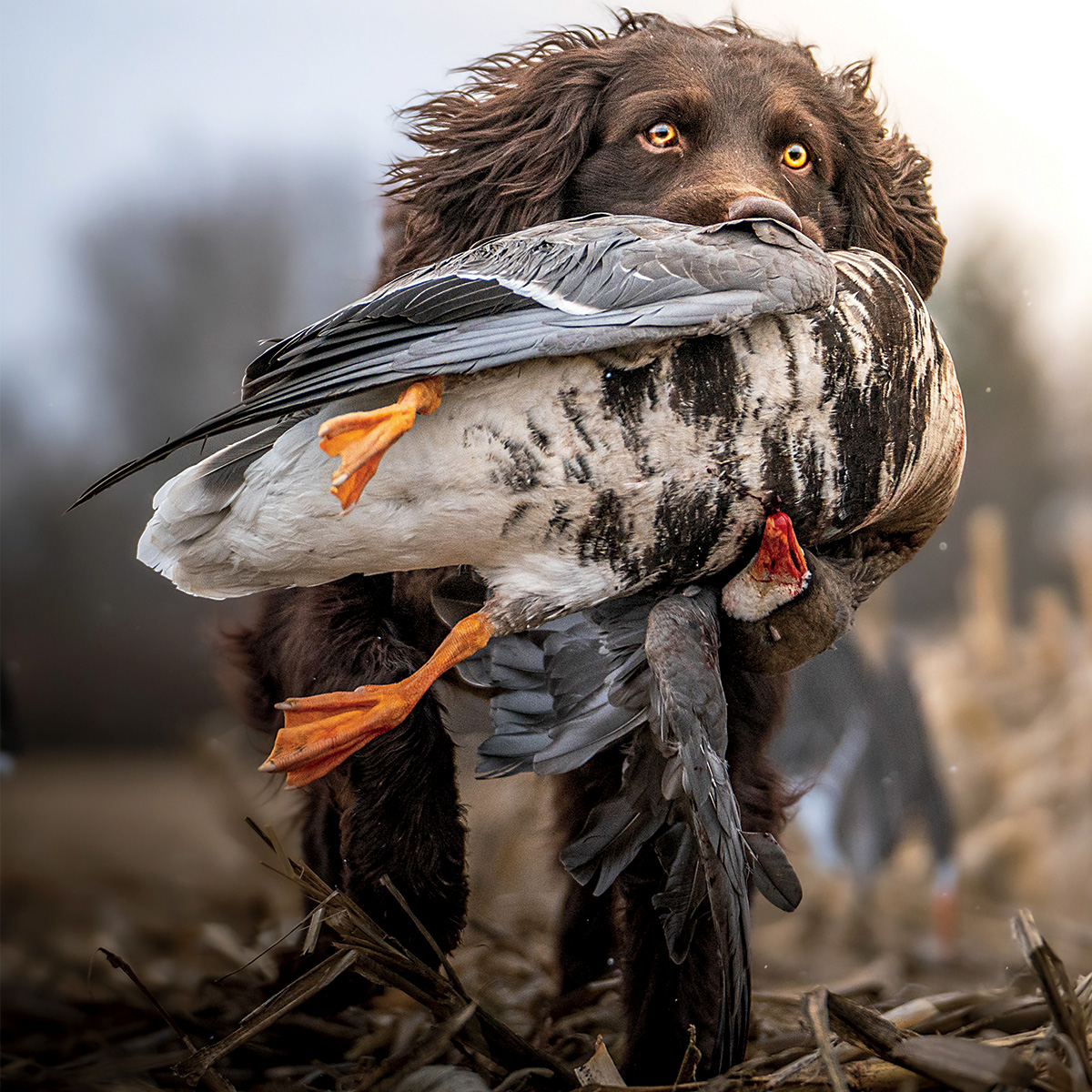
Just as many waterfowl hunters have been scaling down their shotguns to smaller bores in recent years, there seems to be a growing number of hunters making the switch to smaller retrievers. Among the most popular of these relatively small breeds is the Boykin spaniel.
Weighing between 30 and 40 pounds on average, the Boykin spaniel was developed in South Carolina (where it is recognized as the state dog) to retrieve ducks from the small skiffs that were popular among waterfowlers in the south Atlantic region at the beginning of the 20th century. The Boykin’s small size has no impact on its drive and retrieving abilities, however, and this versatile breed will pursue a variety of game in addition to waterfowl, including doves, turkeys, and even squirrels. Boykins have a hallmark medium-length brown coat, which doesn’t provide as much protection from the elements as the heavier double coats of Labs and Chessies. As a result, Boykins should be equipped with a protective, insulating dog vest when retrieving in colder waters.
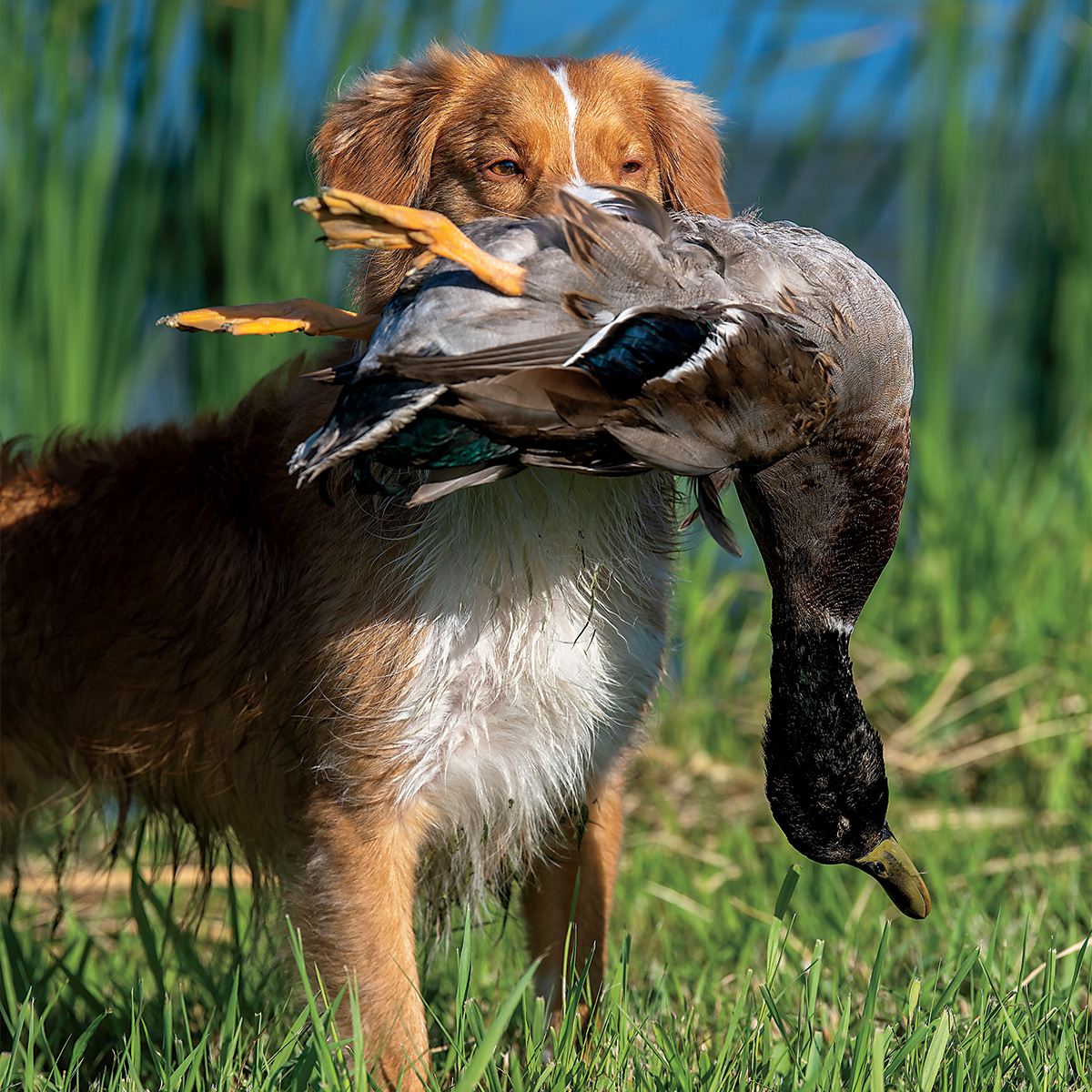
Imagine a flock of canvasbacks floating peacefully on a bay of steel-gray water when suddenly the ducks spot a flash of movement along the rocky shoreline. The birds see a brown-and-white animal moving erratically at the water’s edge. Curious, the ducks move in for a closer look. What is causing the commotion? It’s a Nova Scotia duck-tolling retriever, which just might have been the original motion decoy.
According to Merriam-Webster’s Collegiate Dictionary, the word “toll” in this sense means to “entice or attract game to approach,” and that is exactly what this unique breed of “decoy dog” is supposed to do. Developed by waterfowlers in Nova Scotia, Canada, these unique dogs sport a reddish-brown coat with white markings, which makes them highly visible from a distance. Tollers, as they are commonly known, are trained to playfully fetch a stick or other object along the shoreline. The dog’s energetic, back-and-forth movements and its colorful coat are simply too much for curious waterfowl to resist, and believe it or not, waterfowl often swim in close enough for hunters hiding along the shoreline to get a shot.
Tolling is only half the game, however, and these dogs are also excellent retrievers, making them a good fit for fetching waterfowl even if they are not used for tolling. Like golden retrievers, their good looks and calm, friendly demeanor have made them increasingly popular as pets. Still, some tollers continue to be used for their original purpose, and waterfowlers are advised to select a pup from field stock if they intend to hunt with him.
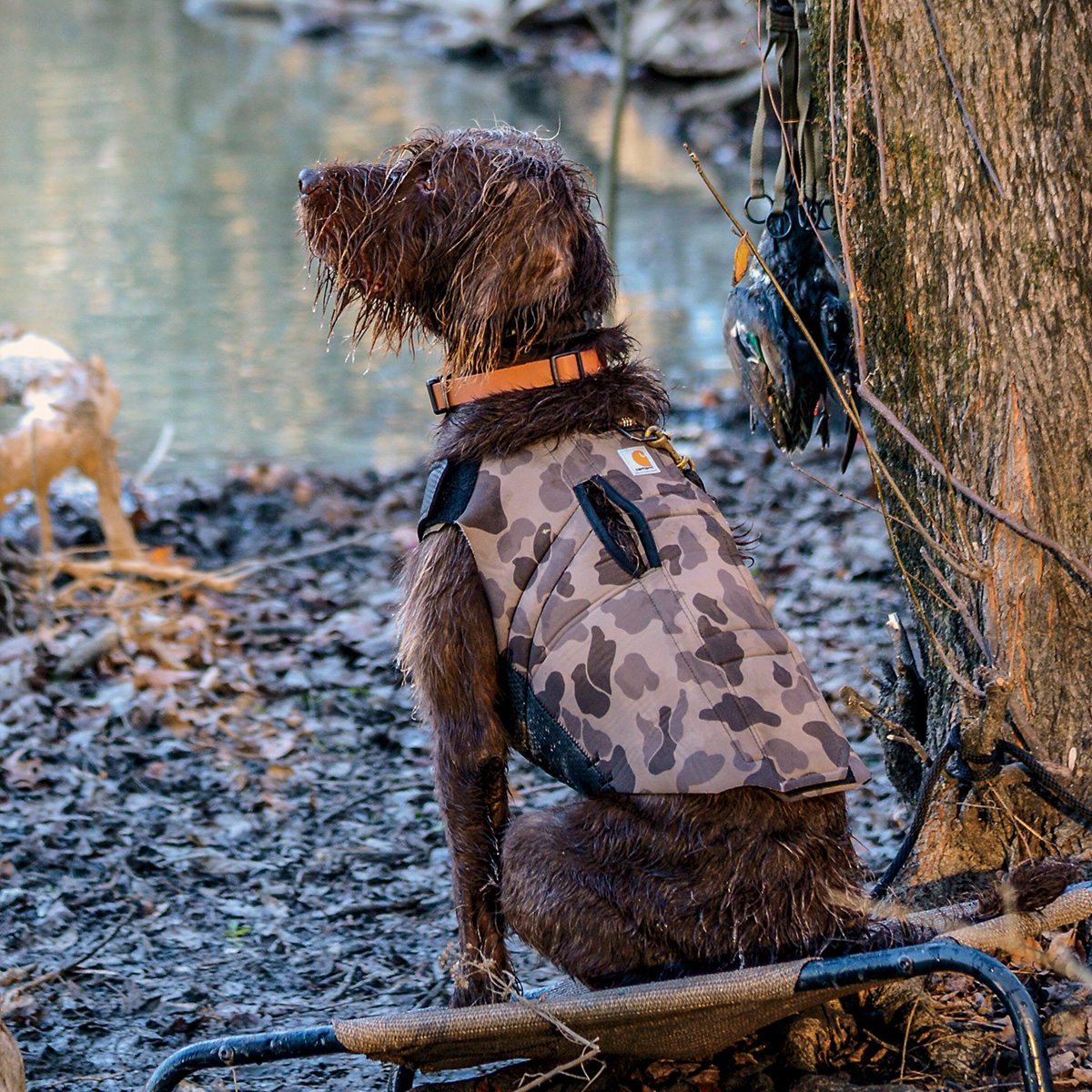
Waterfowlers are not limited to hunting ducks and geese with the dedicated retrieving breeds. With proper training, a number of the so-called “continental” breeds will also do a fine job fetching those birds. German shorthaired pointers, wirehaired pointing griffons, Deutsch-Drahthaars, pudelpointers, and many similar breeds perform brilliantly in the uplands in pursuit of quail, grouse, pheasants, and woodcock, and they can double as waterfowl retrievers in many situations.
Like some of the smaller retrievers, most of these versatile hunting dogs should be equipped with an insulated vest when retrieving in cold water, and some of these dogs, particularly those with very short coats, are not suitable for hunting in bitter-cold weather. Consequently, versatile dog breeds are perhaps most useful for those who hunt waterfowl only a few weekends a year and spend most of their time hunting upland game birds.
So there you have it—a beyond-Labs look at some of the dogs that can do a fine job retrieving waterfowl. Maybe you discovered a dog breed that you hadn’t considered before. Or perhaps you decided that the pup curled up on your bed at home is already the perfect gun dog for you. In the end, every dog has his or her own strengths and weaknesses, and the choice you make ultimately comes down to your specific hunting needs and personal preference.
Ducks Unlimited uses cookies to enhance your browsing experience, optimize site functionality, analyze traffic, and deliver personalized advertising through third parties. By continuing to use this site, you agree to our use of cookies. View Privacy Policy